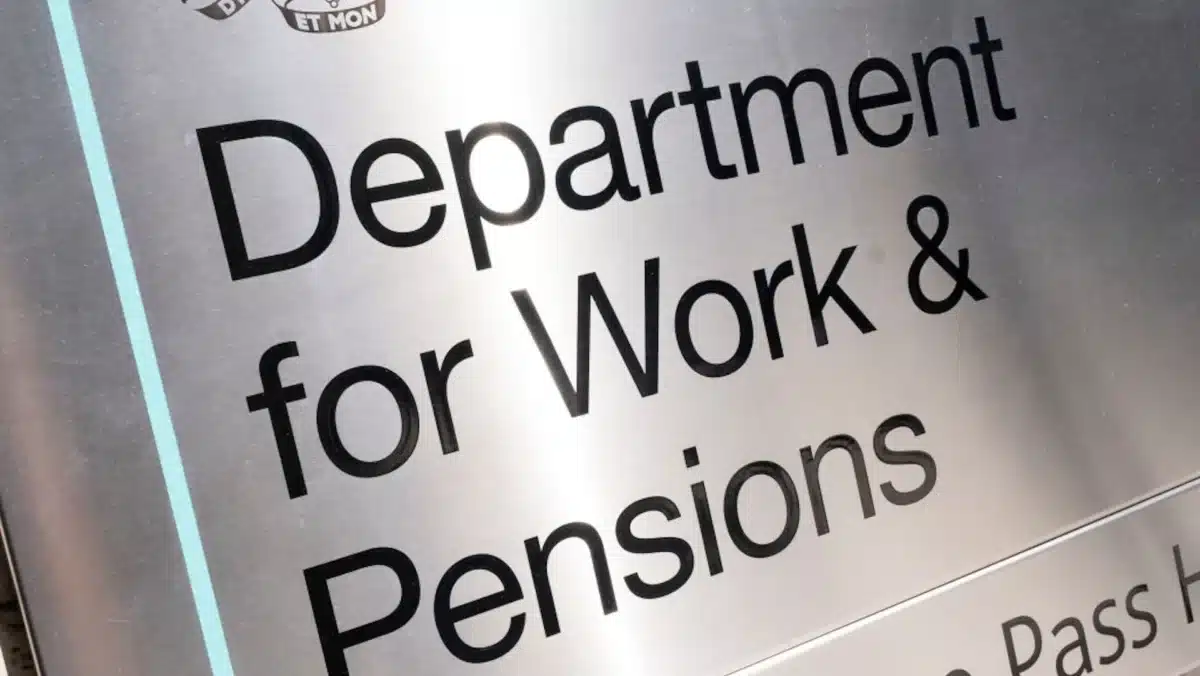In order to test new fraud prevention strategies, the Department for Work and Pensions (DWP) has established a pilot initiative that would involve a limited number of banks and building societies. By 2029, the effort, which aims to improve the benefits system’s integrity, will be fully implemented.
The DWP’s announcement has spurred discussion about striking a balance between strict control and protecting vulnerable people in the face of growing worries about fraud and mistakes in benefit claims. Independent yearly evaluations of the program will be conducted to guarantee accountability and equity.
DWP : Tackling Fraud With New Bank Account Checks
Under the new initiative, the DWP will collaborate with select banks and building societies to perform targeted financial account checks. Initially, accounts flagged for sustained activity abroad or holding balances exceeding £16,000—the typical savings limit for claiming Universal Credit—will be scrutinized. The department views this approach as a way to identify discrepancies and reduce fraudulent benefit claims.
The trial phase will allow the system to be refined ahead of its full rollout. However, Susannah Copson of Big Brother Watch raised concerns over privacy and fairness, stating: “Pursuing this policy would effectively criminalise poverty, treating people as suspects just for being in the social security system.” The organisation warned that wrongful benefit suspensions or intrusive investigations could have severe impacts, particularly on vulnerable claimants.
Daniel Cichocki, director in economic crime and policy strategy at UK Finance, welcomed efforts to address fraud but warned against unintended consequences. “The plans need to be looked at further to ensure they don’t create risks for vulnerable customers or conflict with existing regulatory and legal obligations,” he stated. His call for preventative measures to reduce fraud before it enters the system highlights the need for a comprehensive approach.
Concerns Over Impact on Vulnerable Claimants
While the initiative has been praised for its potential to improve accountability, critics have expressed concerns about its effect on vulnerable individuals. Disability Rights UK campaigner Mikey Erhardt argued that the measures stem from a flawed perception of the benefits system. “Instead of seeing the social security system as an essential public service – a piece of social infrastructure that ensures we all have access to the right support when needed – they see extra costs that, unlike disabled people, they can avoid paying.” he said.
Erhardt also warned that increased scrutiny could lead to claimants losing confidence in their ability to manage benefits independently. “Claimants can also become paranoid and lose confidence in their ability to live independently. This may reduce their autonomy, and they may be discouraged from spending the amount of their benefits on necessities” he added. The DWP, however, insists that safeguards, including annual independent reviews, will be in place to ensure the program is applied responsibly.
The pilot project represents the UK government’s latest effort to combat fraud while addressing growing concerns over social security reforms. Whether this initiative strikes the right balance between oversight and claimant protection will depend on its implementation and ongoing scrutiny.









